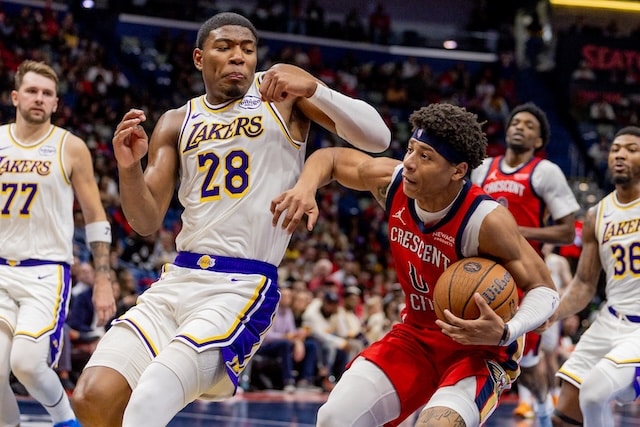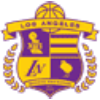The Los Angeles Lakers have established early dominance in the NBA Cup’s Western Conference Group B, embarking on the new tournament format with precision and focus. With an 11-4 record, fourth in the West, and three consecutive wins, they look more cohesive than at any point in recent seasons. LeBron James’s return signals a renewed purpose for a squad blending a high-octane offense with an emerging defensive identity. The Lakers are now 2-0 in Cup group play—a mark fueling optimism about a deep tournament run.
The NBA Cup has shifted the midseason landscape. Designed to add a fresh layer of competitive urgency, all 30 teams were assigned randomly-drawn groups of five, based on last season’s records. These groups battle through designated “Cup Nights,” beginning October 31 and concluding on November 28, with four games per club—two at home and two on the road—against each group opponent. For the Lakers, early victories have placed them at the front of the pack, creating intriguing possibilities for sportsbook analysts.
Emirates NBA Cup Ambitions
Coach JJ Redick—now at the helm in his debut season—has forged the Lakers’ core identity around three pillars: Luka Dončić, LeBron James, and Austin Reaves. Each player serves a distinct but complementary role, forming a nucleus that maximizes both offensive versatility and big-game reliability.
Luka Dončić joined the Los Angeles team in a headline-grabbing move and now orchestrates the offense as the primary ball handler and facilitator. His vision and shot-making give the Lakers an elite playmaking dimension previously missing from their system. Dončić’s command of tempo enables Redick to amp up spacing and create open looks for shooters on the wings.
LeBron James brings incomparable experience, leadership, and still-elite production each night. Even in his fortieth season, James controls the pace, directs traffic on and off the ball, and delivers in key moments—stabilizing the Lakers in close contests. Returning from early-season rest, James immediately reignited the team’s energy and fostered accountability throughout the rotation.
Austin Reaves, now the undisputed backcourt anchor, has flourished with expanded responsibilities. Reaves’s scoring consistency, improved three-point touch, and fearless approach complement Dončić and James on the floor. He’s trusted in crunch time and helps set the tone defensively, taking on challenging perimeter assignments with regularity.
Supporting pieces such as Deandre Ayton, Rui Hachimura, Jaxson Hayes, and Marcus Smart fill critical roles for Los Angeles. Ayton’s rim protection and rebounding anchor the interior, while Hachimura’s energy provides flexibility in matchup-heavy group games. Hayes serves as a reliable backup center, and Smart’s tenacity and playmaking off the bench bring balance to the guard corps. Gabe Vincent, although currently sidelined due to injury, remains a key depth option when healthy.
Group Stage Matchups and Strategy
The Lakers’ path through Group B has displayed tactical growth and resilience. Sitting at 2-0, they have already notched vital wins, building a buffer in the standings. Their subsequent key clashes come on November 25 against the Clippers and November 28 against the Mavericks—both decisive games with Cup knockout implications.
The Cup’s format intensifies regular-season urgency: only the six top group finishers and two wild-card teams move into the single-elimination Knockout Rounds. Quarterfinal games will be held on December 9 and 10, followed by the semifinals and championship in Las Vegas on December 13 and 16. Knockout teams compete for the NBA Cup trophy and a lucrative prize pool, with strategic focus magnified as margins for error shrink.
JJ Redick has leaned into a motion-heavy offense, supported by high ball movement and improved shot selection. Without Jarred Vanderbilt in the starting rotation and Vincent out injured, role players have adapted quickly, filling gaps with hustle and discipline. Defensive sets have focused on fast rotations and sharper communication, with the team ranking among the Western Conference’s best in defensive efficiency over the last ten games.
Tournament Impact and Outlook
The Lakers’ form over the past ten games (8-2), marked by three straight wins, reveals a group meshing when it matters most. Depth concerns have lessened as the team’s core stabilizes and bench contributors step up. Ayton’s positive play has energized the frontcourt, while Hachimura’s two-way versatility adds dimension to their closing group.
As Cup group play nears its finale, the Lakers face high-stakes matchups that will define their tournament trajectory. A strong showing against the Clippers and Mavericks could cement a place in the Knockout Rounds—setting the stage for single-elimination drama. Sports betting franchises have responded by adjusting lines and props, highlighting how the NBA Cup has shifted viewing and wagering dynamics.
Looking ahead, Los Angeles’s blend of seasoned talent and strategic adaptation signals a squad ready for Cup contention. Whether navigating the final group games or preparing for the high-wire act of knockout play, the Lakers possess a core built for prime-time success. Redick’s leadership, Doncic’s versatility, James’s legacy, and Reaves’s growth put Los Angeles in a position few rivals can match. The journey through Cup play is just beginning, but the Lakers have made clear that they intend to be part of its climax, with championship aspirations well within reach.





